Short answer? The slow motion nightmare continues to unfold. Have you noticed an uptick of "allergies," "colds," "I feel like shit!," "I don't know what this is, but I just don't feel right" creeping up in your everyday conversations? I have. If you haven't been paying attention; start. The minor precursor effects have already started..
TEPCO: Reactor may have gone critical NHK. Excerpts:
The operator of the crippled Fukushima Daiichi nuclear power plant says it found in the facility's No.2 reactor radioactive substances that could have resulted from continuous nuclear fission.
The Tokyo Electric Power Company, or TEPCO, said on Wednesday that it detected xenon-133 and xenon-135 in gas taken from the reactor's containment vessel on the previous day. The substances were reportedly in concentrations of 6 to more than 10 parts per million becquerels per cubic centimeter.
Xenon-135 was also detected in gas samples collected on Wednesday.
Radioactive xenon is produced during nuclear fission.
The half-life of xenon-133 is 5 days, and that of xenon-135 is 9 hours.
Children and the elderly will begin to show effects first..
Smaller increase in children's weight in Fukushima NHK. Excerpts:
A survey shows that some children in Fukushima Prefecture have smaller average weight gains this year compared to the year before. A pediatrician says the results indicate the negative effects of the nuclear plant accident in March.
Doctor Shintaro Kikuchi tracked the weights of 245 children aged from 4 to 6 in 2 kindergartens in Koriyama City, Fukushima Prefecture. The results show an average weight increase of 0.81 kilograms over the past year through June. The increase for children in the same age group the previous year was 3.1 kilograms.
The average increase for children aged 5 to 6 in the survey was 0.84 kilograms. But a nationwide health ministry survey conducted last year for children of the same age group showed an average gain of 1.8 kilograms.
Shilling has its price.. From Ex-SKF. Excerpts:
No, not in a young child in a high radiation spot that is often talked about on Twitter. A 63-year-old TV newscaster has been diagnosed with acute lymphocytic leukemia and is now hospitalized, getting ready for chemo. He felt a strange lump in his neck on October 28, he says. (Various news sources including: Zakzak 11/7/2011, Yomiuri Shinbun 11/6/2011)
In his morning program on Fuji TV he's been promoting Fukushima produce by eating them in the show. He also happened to be in Fukushima in March 15. Just a coincidence. Never mind that ALL is predominant in small children, and an adult case is one in 100,000 annually in Japan.
JP Gov officially admitted that Japanese food is harmful Fukushima Diary. Excerpts plus bonus follow up information regarding the previous newscaster in question. Bonus bonus: Now chilling photos of newscaster eating irradiated food. I bet the other news gals are a bit freaked out right now..
Since 311, every time it turned out a kind of food is contaminated, they made “safety” limit, such as 500 Bq/Kg for vegetables, and allowed them to distribute.
However, at today’s meeting of the Lower House Budget Committee, Edano former chief cabinet secretary, current minister of Economy, Trade and Industry admitted that it is harmful for your health if you keep having it for one year.
Edano former chief cabinet secretary is famous for his trade mark phrase, “In short term,it is not harmful”.
He was even called “Short term fraud” by some people.
It is not a small number of people who trusted his word and didn’t evacuate or kept eating food under the “safety limit”. (In other words, LOTS of people trusted him.)
At today’s meeting of the Lower House Budget Committee, he “explained”.
He held 39 press conferences in the first 2 weeks after 311.
BUT he said “In short term, it is not harmful” ONLY 7 times.
OF those, 5 “In short term, it is not harmful”s were for food and drink.
By this he “meant”, you will be sick if you keep having it for one year, but if you have it once or twice, it doesn’t hurt your body.
Japanese emperor to be admitted to the hospital on bronchitis fears Radiation cares not of your position in life.. The China Post. Excerpts:
Japanese Emperor Akihito is due to be hospitalized on Sunday with a cold, fever and symptoms of bronchitis, Kyodo news agency reported, citing the Imperial Household Agency.
Akihito, who will turn 78 next month, will be admitted to the University of Tokyo Hospital as a precaution because the fever worsened the bronchitis symptoms and he appeared fatigued and has lost some resistance to fight his illness, Kyodo said.
And:
Five days after the devastating earthquake and tsunami struck Japan's northeast, Akihito made a rare public televised address and in April traveled to the disaster-struck area with Empress Michiko, 77.
Still think this is a Japanese problem? California nuke plant detected 4,000% more iodine-131 than UC Berkeley during Fukushima peak
Highest detection of iodine-131 was March 23, 2011 @ 4.3e-06 Bq/liter (0.0000043 Bq/liter of iodine-131) -Source
The Diablo Canyon iodine-131 peak was 0.000188 Bq/liter of iodine-131, or 43.7 times higher than the 0.0000043 Bq/liter peak observed by UC Berkeley.
This was MARCH 23. November 11 marks Eight Months of essentially non-stop nuclear disbursement. I wonder what those levels are now?
Look after yourself Fukushima Diary. Short answer? Start taking Calcium and Magnesium. Especially Calcium.
Scientist Marco Kaltofen Presents Data Confirming Hot Particles Latest video from Arnie Gundersen and Fairewinds. Don't have six minutes? Here's the beef:
Now Mr. Kaltofen did not just look at Japan. He set up monitoring stations in the United States as well. Two of the three monitoring stations in the United States did show hot particles in the air in April. Since then, there have not been any hot particles. But in April, it is clear that, at the worst of the accident, hot particles were wafted across the Pacific and deposited in Seattle and in Boston at least. There is also data that indicates contamination on the ground in the Cascades, which are a mountain range right up against the Pacific Ocean.
So I think we have two problems here. In Japan, there is a personal health issue and what that means is that individuals have received enough radiation that there is going to be a statistically meaningful increase in cancers in Tokyo and especially in Fukushima Prefecture.
In the United States, it is a different story. It is a public health issue and not a personal health issue. What that means is that we will never know who is the individual who got cancer from Fukushima. But we can be sure that the radiation did reach here and that there will be an increase in cancers, especially on the West Coast where the Rocky Mountains stopped most of the radiation and deposited it on the ground.
The costly fallout of tatemae and Japan's culture of deceit Japan Times. Excerpts:
There is an axiom in Japanese: uso mo hōben — "lying is also a means to an end." It sums up the general attitude in Japan of tolerance of — even justification for — not telling the truth.
First — defining "telling the truth" as divulging the truth (not a lie), the whole truth (full disclosure) and nothing but the truth (uncompounded with lies) — consider how lies are deployed in everyday personal interactions.
Let's start with good old tatemae (charitably translated as "pretense"). By basically saying something you think the listener wants to hear, tatemae is, essentially, lying. That becomes clearer when the term is contrasted with its antonym, honne, one's "true feelings and intentions."
..
Now extrapolate. What becomes of a society that sees lying as a justifiably institutionalized practice? Things break down. If everyone is expected to lie, who or what can you trust?
And:
..Radiation has no media cycle. It lingers and poisons the land and food chain. Statistics may be obfuscated or suppressed as usual. But radiation's half-life is longer than the typical attention span or sustainable degree of public outrage.
As the public — possibly worldwide — sickens over time, the truth will leak out.
Our near-term and long-term future? Bleak.
TEPCO: Reactor may have gone critical NHK. Excerpts:
The operator of the crippled Fukushima Daiichi nuclear power plant says it found in the facility's No.2 reactor radioactive substances that could have resulted from continuous nuclear fission.
The Tokyo Electric Power Company, or TEPCO, said on Wednesday that it detected xenon-133 and xenon-135 in gas taken from the reactor's containment vessel on the previous day. The substances were reportedly in concentrations of 6 to more than 10 parts per million becquerels per cubic centimeter.
Xenon-135 was also detected in gas samples collected on Wednesday.
Radioactive xenon is produced during nuclear fission.
The half-life of xenon-133 is 5 days, and that of xenon-135 is 9 hours.
Children and the elderly will begin to show effects first..
Smaller increase in children's weight in Fukushima NHK. Excerpts:
A survey shows that some children in Fukushima Prefecture have smaller average weight gains this year compared to the year before. A pediatrician says the results indicate the negative effects of the nuclear plant accident in March.
Doctor Shintaro Kikuchi tracked the weights of 245 children aged from 4 to 6 in 2 kindergartens in Koriyama City, Fukushima Prefecture. The results show an average weight increase of 0.81 kilograms over the past year through June. The increase for children in the same age group the previous year was 3.1 kilograms.
The average increase for children aged 5 to 6 in the survey was 0.84 kilograms. But a nationwide health ministry survey conducted last year for children of the same age group showed an average gain of 1.8 kilograms.
Shilling has its price.. From Ex-SKF. Excerpts:
No, not in a young child in a high radiation spot that is often talked about on Twitter. A 63-year-old TV newscaster has been diagnosed with acute lymphocytic leukemia and is now hospitalized, getting ready for chemo. He felt a strange lump in his neck on October 28, he says. (Various news sources including: Zakzak 11/7/2011, Yomiuri Shinbun 11/6/2011)
In his morning program on Fuji TV he's been promoting Fukushima produce by eating them in the show. He also happened to be in Fukushima in March 15. Just a coincidence. Never mind that ALL is predominant in small children, and an adult case is one in 100,000 annually in Japan.
JP Gov officially admitted that Japanese food is harmful Fukushima Diary. Excerpts plus bonus follow up information regarding the previous newscaster in question. Bonus bonus: Now chilling photos of newscaster eating irradiated food. I bet the other news gals are a bit freaked out right now..
Since 311, every time it turned out a kind of food is contaminated, they made “safety” limit, such as 500 Bq/Kg for vegetables, and allowed them to distribute.
However, at today’s meeting of the Lower House Budget Committee, Edano former chief cabinet secretary, current minister of Economy, Trade and Industry admitted that it is harmful for your health if you keep having it for one year.
Edano former chief cabinet secretary is famous for his trade mark phrase, “In short term,it is not harmful”.
He was even called “Short term fraud” by some people.
It is not a small number of people who trusted his word and didn’t evacuate or kept eating food under the “safety limit”. (In other words, LOTS of people trusted him.)
At today’s meeting of the Lower House Budget Committee, he “explained”.
He held 39 press conferences in the first 2 weeks after 311.
BUT he said “In short term, it is not harmful” ONLY 7 times.
OF those, 5 “In short term, it is not harmful”s were for food and drink.
By this he “meant”, you will be sick if you keep having it for one year, but if you have it once or twice, it doesn’t hurt your body.
Japanese emperor to be admitted to the hospital on bronchitis fears Radiation cares not of your position in life.. The China Post. Excerpts:
Japanese Emperor Akihito is due to be hospitalized on Sunday with a cold, fever and symptoms of bronchitis, Kyodo news agency reported, citing the Imperial Household Agency.
Akihito, who will turn 78 next month, will be admitted to the University of Tokyo Hospital as a precaution because the fever worsened the bronchitis symptoms and he appeared fatigued and has lost some resistance to fight his illness, Kyodo said.
And:
Five days after the devastating earthquake and tsunami struck Japan's northeast, Akihito made a rare public televised address and in April traveled to the disaster-struck area with Empress Michiko, 77.
Still think this is a Japanese problem? California nuke plant detected 4,000% more iodine-131 than UC Berkeley during Fukushima peak
Highest detection of iodine-131 was March 23, 2011 @ 4.3e-06 Bq/liter (0.0000043 Bq/liter of iodine-131) -Source
The Diablo Canyon iodine-131 peak was 0.000188 Bq/liter of iodine-131, or 43.7 times higher than the 0.0000043 Bq/liter peak observed by UC Berkeley.
This was MARCH 23. November 11 marks Eight Months of essentially non-stop nuclear disbursement. I wonder what those levels are now?
Look after yourself Fukushima Diary. Short answer? Start taking Calcium and Magnesium. Especially Calcium.
Scientist Marco Kaltofen Presents Data Confirming Hot Particles Latest video from Arnie Gundersen and Fairewinds. Don't have six minutes? Here's the beef:
Now Mr. Kaltofen did not just look at Japan. He set up monitoring stations in the United States as well. Two of the three monitoring stations in the United States did show hot particles in the air in April. Since then, there have not been any hot particles. But in April, it is clear that, at the worst of the accident, hot particles were wafted across the Pacific and deposited in Seattle and in Boston at least. There is also data that indicates contamination on the ground in the Cascades, which are a mountain range right up against the Pacific Ocean.
So I think we have two problems here. In Japan, there is a personal health issue and what that means is that individuals have received enough radiation that there is going to be a statistically meaningful increase in cancers in Tokyo and especially in Fukushima Prefecture.
In the United States, it is a different story. It is a public health issue and not a personal health issue. What that means is that we will never know who is the individual who got cancer from Fukushima. But we can be sure that the radiation did reach here and that there will be an increase in cancers, especially on the West Coast where the Rocky Mountains stopped most of the radiation and deposited it on the ground.
The costly fallout of tatemae and Japan's culture of deceit Japan Times. Excerpts:
There is an axiom in Japanese: uso mo hōben — "lying is also a means to an end." It sums up the general attitude in Japan of tolerance of — even justification for — not telling the truth.
First — defining "telling the truth" as divulging the truth (not a lie), the whole truth (full disclosure) and nothing but the truth (uncompounded with lies) — consider how lies are deployed in everyday personal interactions.
Let's start with good old tatemae (charitably translated as "pretense"). By basically saying something you think the listener wants to hear, tatemae is, essentially, lying. That becomes clearer when the term is contrasted with its antonym, honne, one's "true feelings and intentions."
..
Now extrapolate. What becomes of a society that sees lying as a justifiably institutionalized practice? Things break down. If everyone is expected to lie, who or what can you trust?
And:
..Radiation has no media cycle. It lingers and poisons the land and food chain. Statistics may be obfuscated or suppressed as usual. But radiation's half-life is longer than the typical attention span or sustainable degree of public outrage.
As the public — possibly worldwide — sickens over time, the truth will leak out.
Our near-term and long-term future? Bleak.

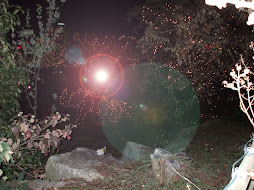



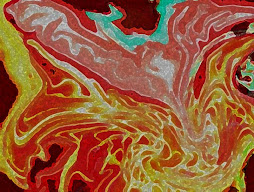



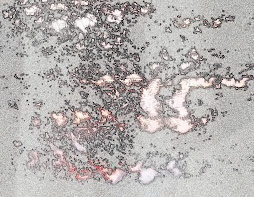




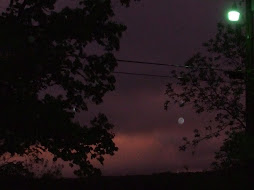













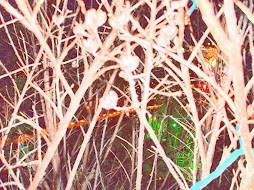




















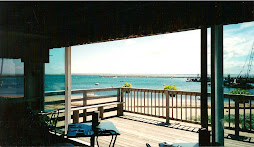


























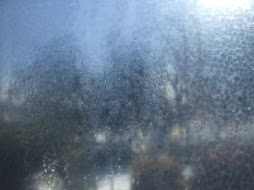



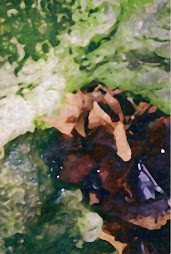






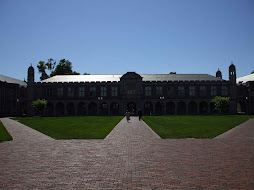








No comments:
Post a Comment